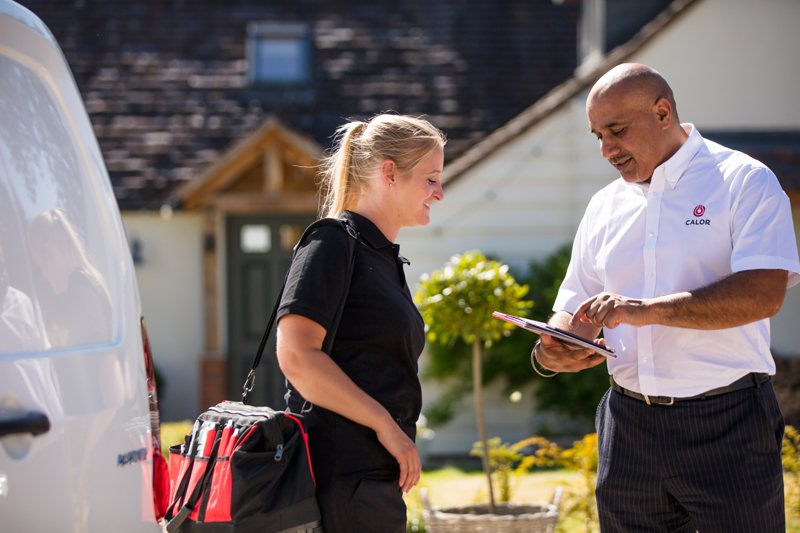
Karl Bateman, National Specifier Manager at Calor, discusses the impact a new report on climate change could have on installers, and how low carbon fuels such as BioLPG could play their part in the solution to future-proofing rural heating.
A new report from the Committee on Climate Change (CCC) – ‘UK housing: Fit for the future?’ – warns that the UK is not on target to meet carbon emissions targets. It has suggested the Government bans the use of gas hobs and boilers in new homes by 2025, advising homes are heated using electricity or district heating instead. As a result, the Chancellor’s recent Spring Statement confirmed these plans to ban the use of gas heating for new-builds by this date.
With the CCC recommending that new homes are not connected to the mains gas grid, it’s likely that phase two would include preventing the installation of gas boilers in retrofit and renovations too.
This news has raised concerns among installers, especially those who rely on gas boiler installation and maintenance as their ‘bread and butter’ business. Although the CCC is correct in its observation of a lack of progress on reducing emissions, the report doesn’t take into consideration other low carbon solutions suitable for properties off the mains gas grid that have been developed in recent years, such as BioLPG.
So, what makes BioLPG a cost-effective low carbon solution, and how can installers capitalise on the shift towards greener fuel options and make low carbon work for them and their rural customers?
What is BioLPG?
BioLPG is a renewable fuel that shares an identical chemical structure to LPG, but is created from a mix of renewable and waste materials. BioLPG is a drop-in fuel, which means it’s compatible with current LPG heating systems and appliances, and the system requires no additional upgrades or adjustments.
According to Atlantic Consulting, BioLPG reduces a home’s carbon footprint for heating by 38% compared to heating oil, making it an excellent option to recommend to customers who are actively looking to future-proof their home energy.
Easy installation
For installers, BioLPG offers a low cost, low carbon solution that is easy to specify and fit. If your customer is currently using LPG, it’s totally hassle-free, and all that’s needed to switch is one phone call to change the tariff.
If your customer is on oil, replacing an existing oil-fired boiler for an LPG system is easier and faster than you may think. With very similar technology to mains-gas combi boilers, installers will likely find LPG boilers very familiar to install.
What’s more, the installer doesn’t have to worry about air in the system or connecting the filter. This can make installation quicker, and where an oil boiler could take a day and a half to install, an LPG boiler would only take a day, in most cases. BioLPG also broadens your service offering, meaning you can offer a low carbon option – crucial in a time where more and more consumers are becoming energy and carbon conscious.
LPG boilers save on space in comparison to oil boilers as they are a compact option, while they can be wall mounted, which is ideal for homes where space is at a premium.
Customer benefits
Like its LPG counterpart, BioLPG offers all the benefits of mains gas, providing heating, instant hot water and powering appliances, such as tumble-dryers. Cooking on gas – the Government has yet to extend the ban to include gas hobs for new homes – has never been easier either, with an instant controllable flame. What’s more, many A-rated boilers that run on LPG and BioLPG have been proven to achieve efficiencies of 90% or more.
Installer support
During the switching process to BioLPG, Calor offers a range of support and incentives to its installer community, including a reward of up to £250 for every successful domestic bulk customer conversion.
The ‘Find an installer’ tool on the Calor website also helps potential customers find a local LPG gas engineer, generating valuable leads for rural installers. Calor provides an online tariff quote tool too that includes BioLPG, making it easier for installers to discuss this greener option with their customers and advise on ongoing fuel costs.













